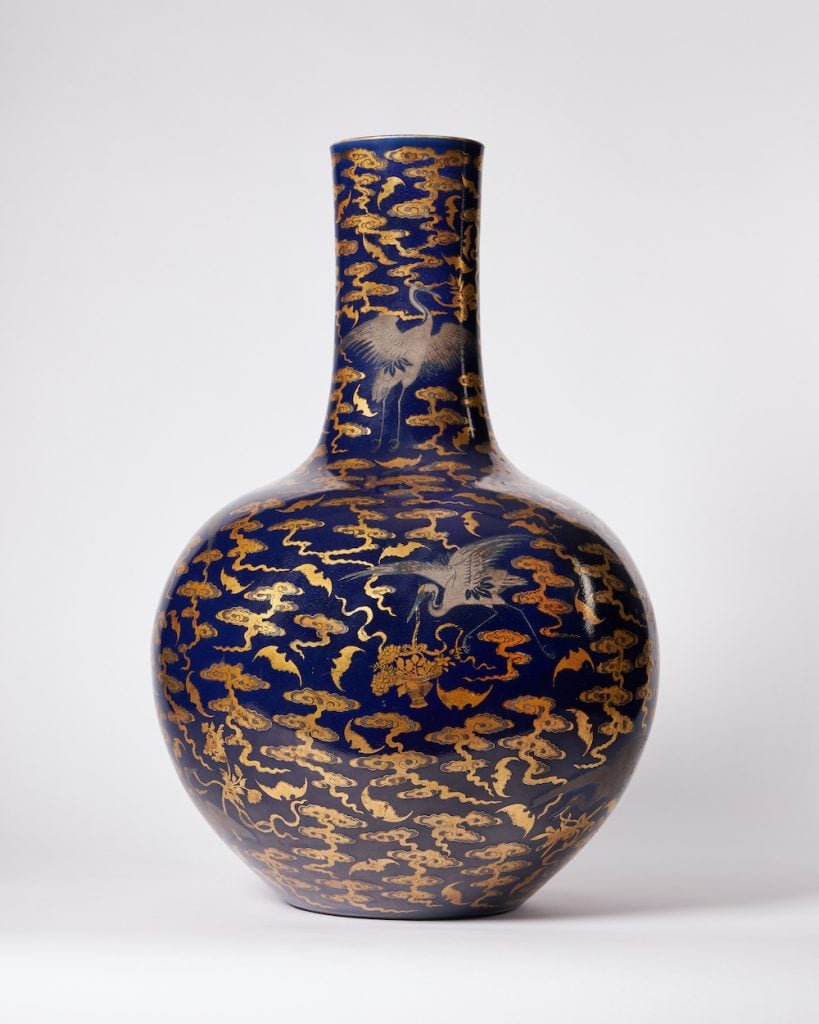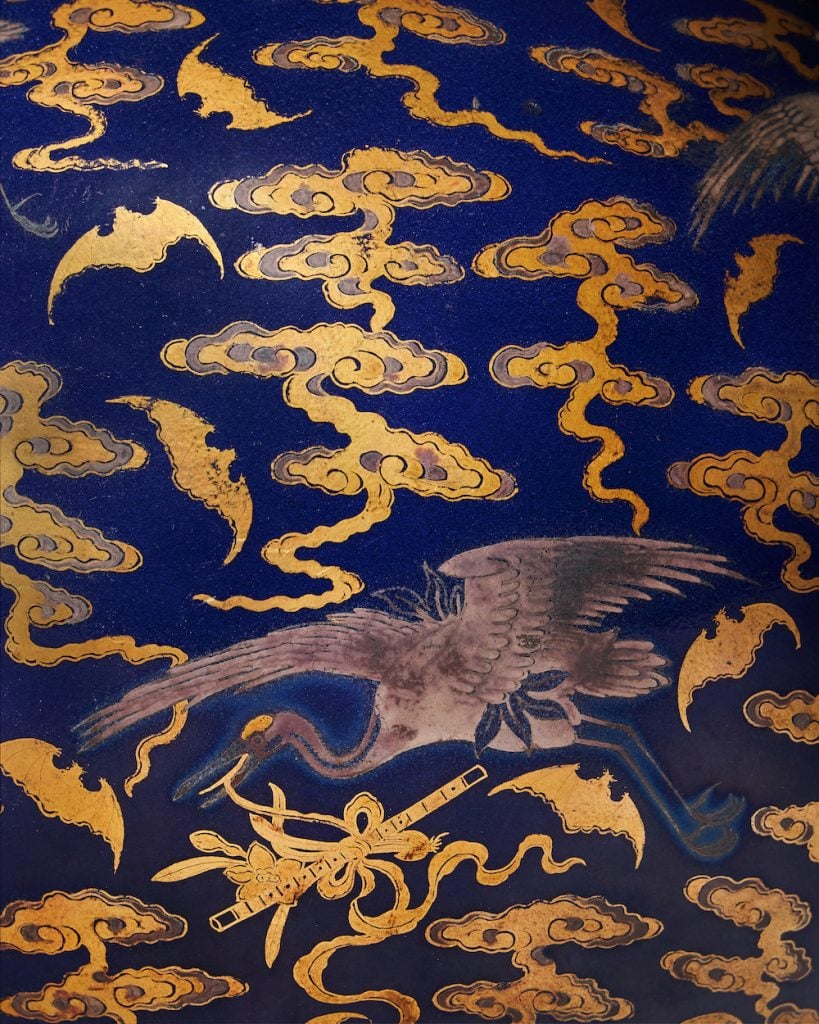Auctions
A British Surgeon Bought a Chinese Vase for a Few Hundred Pounds in the 1980s. It Just Sold for $1.9 Million
It turned out to be from the 18th-century Qianlong period.

It turned out to be from the 18th-century Qianlong period.

Dorian Batycka

The thrill of the hit BBC television series the Antiques Roadshow lies in the discovery of potentially priceless works of art by ordinary, everyday people.
Such was the case when an 18th-century cobalt glazed vase, believed to have been purchased for a few hundred pounds by a British surgeon in the 1980s, landed at auction this week where it was sold to an international buyer over the telephone for £1.5 million ($1.9 million), more than 10 times its high estimate of £100,000–150,000 ($125,000–185,000) yesterday.
Experts at the auction house Dreweatts in Newsbury, England, discovered that the porcelain urn, noteworthy for its royal blue color and celestial iconography relating to the eight immortals of Taoism, was in fact an extremely rare vessel dating to the Qianlong period (1736-95), which experts deduced by virtue of a six-character signature at the base.
“The rich cobalt blue is often referred to as ‘sacrificial blue’,” the auction house said in a statement, “deriving from the use of vessels in this color glaze being used during sacrifices at the Imperial Altar of Heaven.”
The two-foot-tall decorative object is thought to exemplify the Chinese emperor’s taste for enameled objects crafted with exotic imagery.

Courtesy of Dreweatts.
Mark Newstead, a consultant at Dreweatts who discovered the piece, said that he first saw it in the home of the late surgeon “in the late 1990s or early 2000s,” he told Artnet News in an email.
“The house was large but the kitchen quite small and this piece was in an alcove and stood out in terms of the luminosity of the color and its unusual design,” he recalled. “I just said I thought it was rather good. I am not sure they really took what I said very seriously, and I heard nothing more.”
The auction house added in a statement that the work proved to be even more unique than anyone expected.
“It is extremely rare to see blue vases painted in both gilding and slightly raised silver, thought to be due to the medium being difficult to control. Thrillingly, no other porcelain decorated with the same subject in gold and silver appears to have ever been documented.”